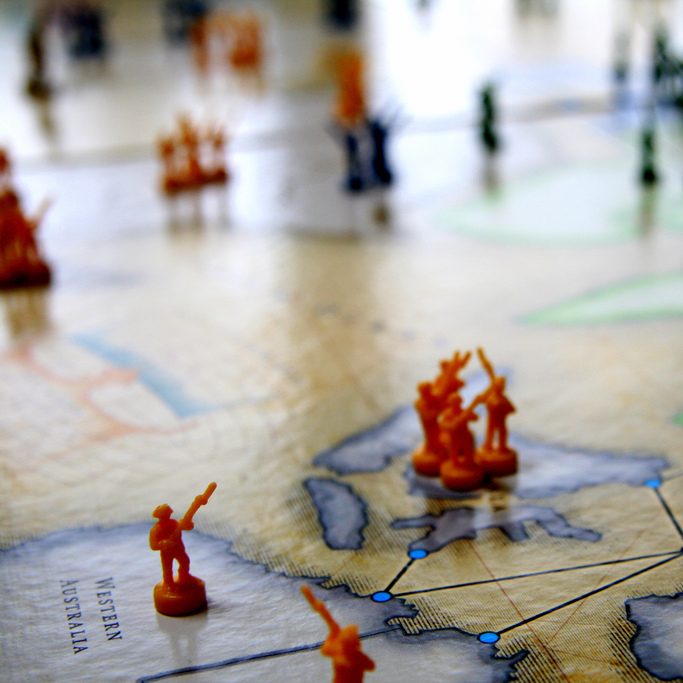According to Napoleon, a leader is a dealer in hope. There are all the technical changes and tough cuts that have to be made at a time of recession, but more than anything else, a political leader needs to deliver hope to his or her people.
Like every other commodity, there are different types of hope. There is false hope, which was groundless from the beginning. There is dashed hope, which could have come to something, but didn’t for whatever reason. Then there is real hope, which is often a tiny glimmer at the bottom of a box of troubles.
So if you want to get some hope in post-celtic tiger Ireland, who are the main dealers open for business, and what’s the quality of the goods they are offering? For starters politicians have mostly missed out on buying into a hope franchise. They believe that they if they stare at the numbers long enough and argue enough, that they can bypass the hard reality. They can’t. Our economy has a serious issue. There’s no point pussy-footing around it. Painful decisions have to be made, and they are the people who are going to have to make them.
But there are alternative suppliers in the marketplace. The Ideas Campaign is the latest dealer in hope. From the website: ‘The Ideas Campaign is about asking people for ideas to stimulate economic activity. It is challenging people in Ireland to be innovative and creative and to play their part in planning this country’s economic recovery.’
However, there is a risk that this will turn into false hope. The one idea that have come from the campaign so far seems naive. The Irish Times reports that Aileen O’Toole, the founder of the Ideas Campaign “cited one idea from a man who works with a social housing group who sees plasterers and plumbers walking past his rundown houses on their way to collect social welfare payments. He believes many tradesmen would be willing to lend him their skills for the greater good during a period of unemployment. ”
It seems like a nice idea to have people work for free whilst they are on the dole. But this hardly seems fair. For one thing, it will undermine contractors who are tendering for work with social housing groups (and who presumably have to pay their tradesmen). For another, adding more housing to an already oversupplied housing market is unlikely to do much good. Still another problem, it seems wrong that distributors and manufacturers would get money for the raw materials they supply, but that tradesmen who work and install them get nothing. The idea that there is a quick fix to our economic woes would be a false hope.
But still, the Ideas Campaign is onto something here, something that can be the foundation of real hope. Even if the idea isn’t quite as feasible and simple as it might seem, it stimulates thinking. More importantly, it stimulates involvement. People are involved in the economy. The undoubtedly hard changes that are coming will then seem like part of a recipe for getting things moving again, rather than a relentless parry of wage cuts.
Thats where hope arises. The belief that we are engaged together in doing something that will make a difference, even if that difference will take a long time to achieve and will take a lot of pain.
Look at the issue of unemployed tradesmen – maybe the problem is that the social housing group can’t afford to employ tradesmen, because rates are too high? Then we need to make it possible for tradesmen to work for an acceptable price, rather than hoping they will work for free. Maybe we just have too many tradesmen, in which case we need to retrain some of them. We should look at everything, including the minimum wage, if that’s what what it takes to get things working again. Or maybe we need to look at the structure of the housing market, to make the existing housing stock available to more people, then that’s what we should do.
Hope is not about coming up with fast, simple answers. There are few or none of these for an economy that is in the mess ours. However, there are lots of ways to make things better and every possibility that things will turn around, if we focus on our strengths and keep working at it.
So to succeed in dealing hope, the Ideas Campaign needs to focus on the process as much as the actual ideas. As well as trying to pick winning ideas, I hope they will put all the ideas they have out there for people to think about and discuss, maybe in a discussion board format. They should certainly get the opinions of the great and good through an advisory committee, but they should also take the time to engage with people, to listen and to explain. Where has the money gone? What will we do? What are our economy’s (and our country’s) strengths?
If it does that, it will make more progress in moving us forward than the politicians have so far.
